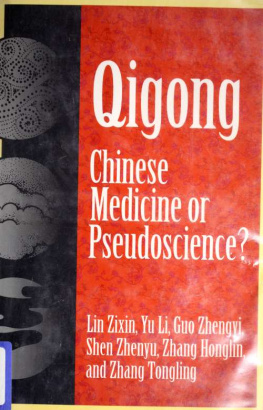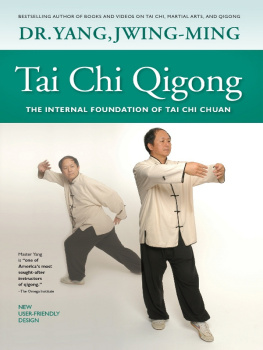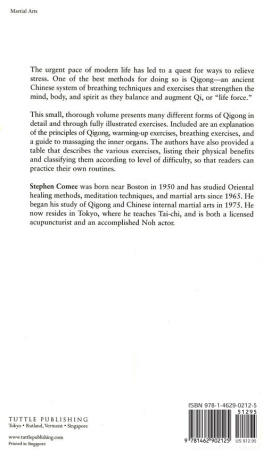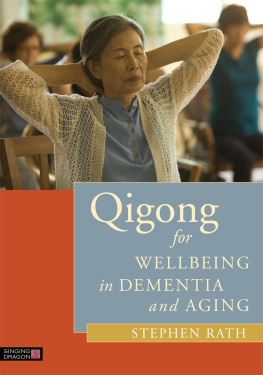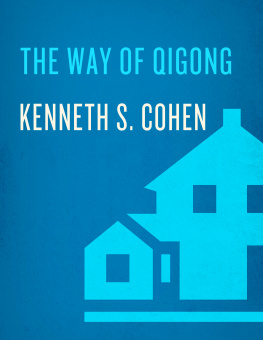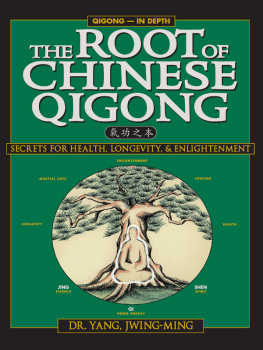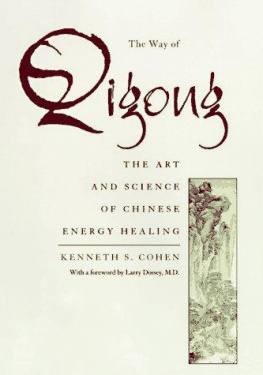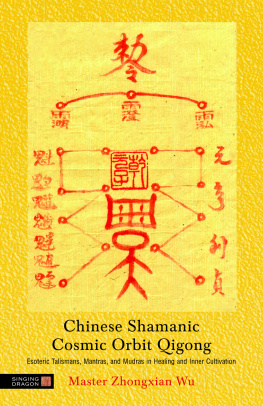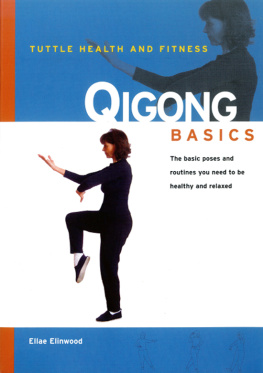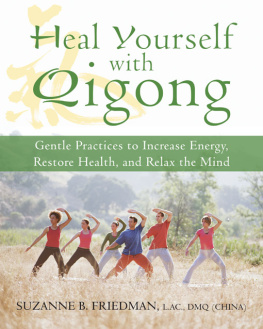This book made available by the Internet Archive.
Regulate the Mind and Adjust Thought 41
Modem Scientific Investigation into Qigong Theory 49
I External Qigong 51
Its Origins and Development 51
Tl%e Analysis of the Essence of the Effect of External Qigong Therapy 53
The Secret of Van Xin's "Lectures with Qigong" 56
The External Qigong Experiment Crossing National Boundaries 59 The experimental result showed that the physical basis
of External Qigong is not credible 60
The experiment on bacteria was not repeatable 61 The truth of the experiment on External Qigong
at Hsinghua University 62 The truth of the experimental report given by Zhang Xiangyu 65
The Recognition of the Essence of Qigong 67
3. Itinerant Quackery and Qigong 73
The Truth of Magic Tricks of Pseudo-Qigong 15
Ten Diagnoses of Diseases of "Qigong Super Abilities" 86
Using the telephone to gather information about the patient 87
Sending disciples to seek useful information 88
Adapting oneself to the circumstances 88 Taking advantage of the opportunity when
the patient is reckless 89 Stealing the beams and pillars and replacing them
with rotten timberperpetrating a fraud 90
Trying to upset the patient 91
Venting anger on the patient or visitor 92
Preparing the stage 93
Exploratory talks between a Qigong crook and patient 93
4. The Debate on Human Extraordinarf Ability
vs. Qigong (Inner Rung Fu) 97
The Shift in Emphasis 97
Qigong: The Key to Opening Human Potential 102
Qigong Miracles and Special Function 104 The effect of External Qigong on living and nonliving things
(PK phenomenon in special function terminology) 105 Remote killing or control (in special function
using the power of the mind to cut or move objects) 105 Removing wsLtch needles, curving keys, moving objects,
cutting steel bands, and performing surgical operations
using mental power 106 Mind reading (thought transfer in special function) 107 Special visual abilities acquired by practicing Qigong
(seeing supernatural beings in special function) 108 Telling the future and reliving the past
(fortune-telling in special function) 109 Summoning the wind and rain (special abilities
gained by practicing Qigong 110 Smoke emanating from hands (high-level function
in special function) 111
Four Chinese Contemporary Super-Qigongists:
Van Xin, Zhang Honghao, Zhang Xiangyu, and Zhang Baosheng 112
Reports on Defrauding by Use of Qigong (Special Function) 129
Eastern Renaissance 133
5. Qigong and Ultra-deviation 137
Ultra-deviation and Its Symptoms
Contents
What is ultra-deviation? 137
Symptoms of ultra-deviation 138
Where does the symptom "Sense of Energy" come from? 142
Not special function but hallucination 145
Wliy Does Ultra-deviation Occur? 147
What circumstances are likely to produce ultra-deviation? 147
Some concerns regarding the trainees themselves 148
Prehminary study on the mechanism of ultra-deviation 149
Must the Trainee ''Break through the Barrier" of Deviation? 151
One Should Prevent Deviation When Practicing Qigong 153
Have a psychological consultation before practicing Qigong 153
Have a clear goal for practice 154
The time of daily practice should not be overextended 154 Do not fear disease and abstain from medical care
when deviation occurs 154
The instructor should be responsible for his students 155
Preface
AS we look back at human lustory, we see tliat various peoples and nations througliout tlie world created distinctive civilizations. Some of these civihzations continued, some failed to progress, some were drowned out, while others persevered though their progress was labored on their historical path to the present day. That the Chinese nation, with an uninterrupted civiHzed culture of more than 5,000 years, could be passed down successfully to this day is worth exploring; perhaps that is why this Oriental civilization attracts so much attention in our modern scientific world of interaction and interdependence.
There are many reasons for a nation to continue and progress, rather than disappearing under the pressure of natural catastrophe and man-made calamities. One of the major prerequisites may be its health care and disease-prevention activities. The art of medical treatment
Preface
and health preservation is one significant aspect of the characteristic Chinese culture. Because cultural exchange among the peoples of the world had not been extensive, there emerged a sense of mystery surrounding Chinese culture. Apart from certain philosophical ideas, the core of this mysticism concerned the art of medical treatment and preserving people's health. In the 1970s the art of acupuncture and moxibustion swept across the globe, and the ranks of kung fu (martial arts) followers have been growing ever since. By the 1980s, the popularity of Chinese Qigong began to grow rapidly, stirring up intense excitement not only in its homeland, but also beyond China's boundaries.
The art of acupuncture and moxibustion were generally accepted by the people of the world because they could allegedly achieve predictable physiological effects. Though we do not fuUy understand its physiological mechanism, we are sure we will find the answer to this enigma through scientific investigation. But the spread of Qigong has been different from that of acupuncture and moxibustion. Over the last few years the Qigong craze has gotten out of hand, and a lot of puzzling aberrations have occurred in both its promotion and practice. Qigong thus suffers greatly due to ignorance, backwardness, pseudoscience, and antiscience. Meanwhile, due to the appearance of many implausible conclusions that resulted from either popular demonstrations or mistaken public opinions, an increasing number of people began to feel disappointed, skeptical, and befuddled.
Qigong is a part of the cultural heritage of the Chinese nation. It can be practiced without the aid of drugs anywhere one likes, and, when mastered, will serve to balance one's vitaHty, supplement one's energy, stamp out disease, and promote one's health. But we must point out as well that practice without appropriate training may lead one to "lose control and bring in demoniacness," to use Chinese terminology, or to "induce psychosis," to use modern medical terminology. This is absolutely what we must avoid. In recent years, plenty of charlatans emerged throughout China. They created a lot of pubUcity for themselves, pretending to be Qigong masters by resorting to all sorts of conjuring tricks, cheating, and pseudoscience. It not only created considerable confusion within China, but also perplexed the outside world. For this reason, we invited experts in this field to write this book in an attempt to promote some thoroughgoing reform.

